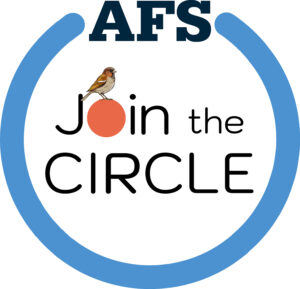I would like to take this opportunity to share some thoughts and reflections with the AFS community. From the beginning of the pandemic, I have been trying to help children, teens, parents, and teachers cope with a surreal circumstance while simultaneously trying to do so myself. Here are some of the things I have learned:
Normal Reactions to an Abnormal Situation
I suspect most of you have experienced a wide range of emotions and moods since the pandemic changed everything, including fear, anxiety, panic, depression, irritability, anger, boredom, and restlessness, to name a few. Perhaps on a good day you have also experienced moments of hope, joy, connectedness, optimism, and relaxation. Many school-age children I work with have admitted feeling guilt that they are sometimes experiencing lower overall stress while the rest of the world is facing a global crisis. On the other hand, other students have been devasted by the loss of defining milestones.
All of these feelings are normal reactions to an abnormal situation. Our emotion systems are doing their job: Helping us organize a response to a significant circumstance. In other words, our emotions are helping us adapt. For example, I have no doubt that we are all experiencing grief over the loss of many things, from the small to the profound. Grieving involves the full range of emotions listed above and also involves two tasks: 1) getting used to the new normal and 2) making meaning out of the loss. These tasks take time and energy and require that we acknowledge and accept our feelings, rather than dismiss or ignore them. There has never been a better time to allow ourselves to admit how we are feeling, at least to ourselves. If we do not, we run the risk of taking our feelings out in destructive ways and this is likely to directly affect our loved ones. In contrast, when we give ourselves permission to feel we increase the chances of responding to a challenge with more flexibility and control and perhaps have some companionship while doing so.
Acceptance, Gratitude, and Self-compassion
Earlier this week, a teenager I have worked with for many years began our session by saying, “I have started to accept that I have nothing to look forward to right now, so I’ve been trying to live in the moment.” For this particular teen, this has meant spending more time playing video games online with his friends and taking pictures outside. In more normal times, his thoughts are frequently worries about the future, being accepted by peers, getting into college, etc. He will continue to have these thoughts but has now learned how to redirect his attention away from things he cannot control right now to those that are in the moment. This ability opens the door for a more mindful and self-compassionate approach to each day.
The idea that it is important to accept that which we cannot change and focus our efforts on things we can change is not new. It is also not easy. Acceptance can often be achieved by letting go of the struggle we often have with the feelings that come with important problems we have no power to control. Since we cannot actually get rid of these thoughts and feelings, acceptance means making room for them and bringing them with us while we do what we really need to do. When we tap into this type of acceptance, we also make room for gratitude and self-compassion.
Our brains are built to take things for granted so that we focus our attention and energy on problems to solve. This means we are meant to lose perspective. Thankfully, we also have the ability to notice this happening and ground ourselves in a different perspective. Spending time thinking about things we are grateful for each day can have a significantly positive impact on our emotional well-being. Likewise, adopting a mindset that includes self-compassion is challenging, yet critical. Self-compassion is a caring form of acknowledgment that we wish we did not feel or act in a certain way. It is also accepting that it is okay that we do feel and act the way we do.
Our community is filled with high achieving students, parents, and teachers who are used to exceeding expectations. One unfortunate by-product of a group of high achievers is a mistaken belief that we should also be able to rise above “normal” in all situations. With so much loss and challenge, we have likely not felt like the best version of ourselves and may frequently feel like a failure or that we have lost our identity. Not surprisingly, this leads to much self-criticism which only adds to an unstable emotional climate. Instead, allow self-compassion to set these expectations, reduce self-criticism, and then focus our energy on what we want to do next.
Opportunities
If part of grieving involves making meaning out of a loss, then we can look for opportunities to make meaning each day. I’ve learned so much about what this can look like from the families I work with in addition to my own family and friends. I see families using this as an opportunity to clarify values and priorities. For example, talking less about schoolwork and more about what movie to watch. Shifting from a busy daily calendar to a more relaxed, fluid routine. Staying up later because everyday kind of feels like a Saturday. Recognizing the importance of staying socially connected when we have to stay physically distant. Looking for opportunities to make new memories, some of which we may even feel nostalgia for at some point in our future.
For all of us, especially teenagers, whatever is happening right now can often feel like the climax of our story. This means that, for many, their stories may end in tragedy or disaster. At the same time, it is possible that what we are experiencing now is chapter one of the story of the rest of our lives. In that way, this is the beginning of our origin story. Let’s start writing together.
I wish I did not have to write to you under these circumstances. Nonetheless, I am so grateful that I am part of the AFS community and can experience this all with you. I know I speak for the Student Support Team across all divisions when I say that I hope you all feel encouraged to reach out to us in times of emotional need. We are here.
With Regards,
Michael
 Michael Cassano P’29
Michael Cassano P’29
